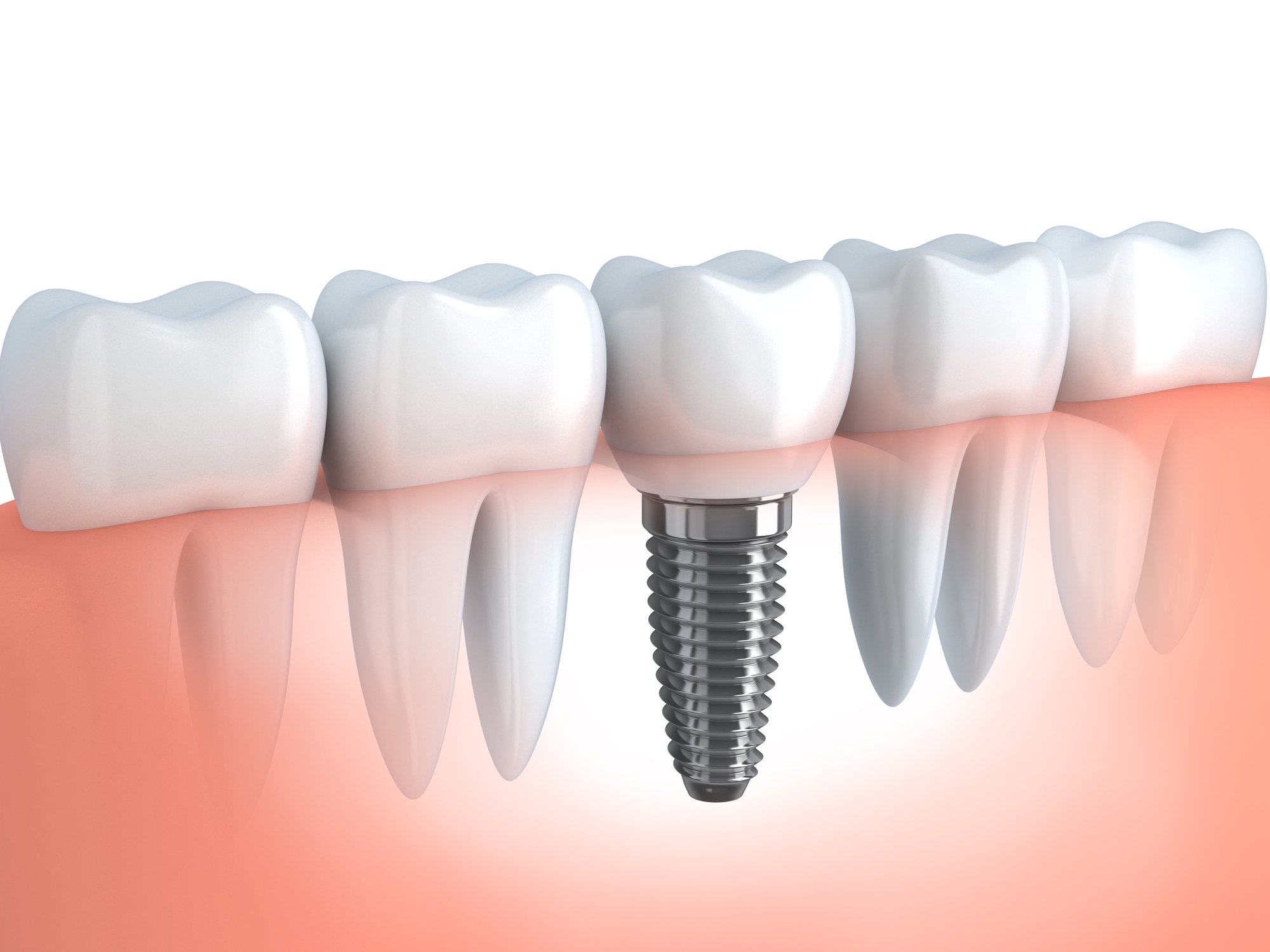
There are a few options when replacing one or more teeth, including dental implants and removable dentures. Ultimately, dentures and implant-supported prostheses serve similar purposes:
- Supporting facial muscles
- Stabilizing remaining teeth
- Biting and chewing foods
- Improving speech and aesthetics
However, there are significant differences between dental implants and dentures. Choosing the most suitable tooth-replacement solution depends on bone health and lifestyle. Here are four factors to consider before choosing between dental implants or dentures:
1. Jaw Bone Density
A healthy, strong jawbone continuously destroys and rebuilds itself thanks to natural chewing forces. Consequently, when a tooth is lost or extracted, chewing forces become unbalanced, and the bone cannot rebuild itself at the rate it is being destroyed. During the first year after tooth loss or extraction, bone loss is anticipated and will continue over time.
Dental implants combat bone atrophy by acting as the natural tooth root. According to a clinical trial published by the British Journal of Oral and Maxillofacial Surgery, the clear benefit that dentures retained with implants have over traditional dentures is that they protect against jawbone resorption, which raised the satisfaction rate of patients.
Unlike dental implants, dentures do not mimic the natural tooth root. Nothing triggers mineral delivery to the jaw so that the jawbone will become brittle and weak over time. Since dentures are not anchored in the jaw, bone atrophy is bound to happen.
2. Stability
During dental implant recovery, the bone fuses to the dental implant. This phenomenon is called osseointegration and creates a more stable foundation for prosthetic teeth. Once osseointegration occurs, the implant becomes a fully functioning part of the mouth and can withstand normal chewing forces.
Nevertheless, a chief complaint about dentures is that they tend to move, which can cause ulcers (or sores) to form on the gums.
3. Maintenance
People care for their dental implants similarly to their natural teeth:
- Twice daily brushing and flossing
- Twice annual dental checkups
Comparatively, dentures require greater daily maintenance. For example, dentures should be removed and cleaned after meals. Additionally, they must be removed and soaked in water or a cleaning solution overnight.
4. Lifespan
Dental implants are respected as a long-term tooth replacement option. Researchers report that implants have high success rates—in the high 80 to high 90 percentile. It’s important to note that the prosthetic crown, bridge, or denture must be replaced if worn down or damaged.
Generally speaking, dentures can last for a decade or more before replacement. However, the risk of breakage and damage increases with denture age. Professional relining and repairs can help extend the lifespan of dentures. Also, removable dentures change your bite over time, so refitting is necessary.
Learn More About Dental Implants in Coffs Harbour, NSW
In a nutshell, dental implants and dentures are both suitable options to replace teeth. However, dental implants are superior in:
- Preventing bone atrophy
- Steadiness
- Care
- Longevity
While both tooth-replacement options have pros and cons, it’s essential to discuss your options in detail with a knowledgeable dentist. Our team educates patients about the benefits of both treatments and helps them decide if dental implants are appropriate for them. Contact us online or call us at (02) 6652-3242 to schedule a free consultation at Magic Smiles Dental at your earliest convenience.


